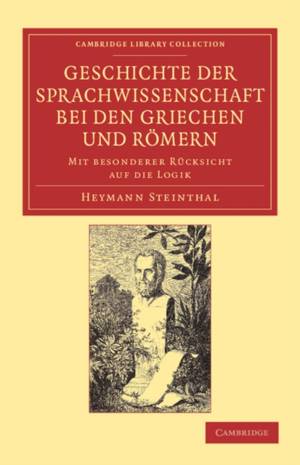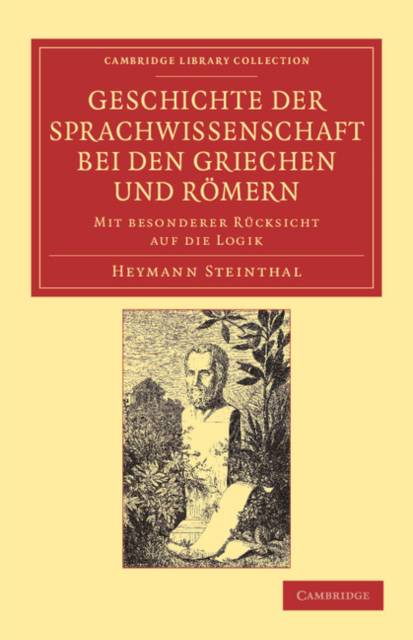
- Afhalen na 1 uur in een winkel met voorraad
- Gratis thuislevering in België vanaf € 30
- Ruim aanbod met 7 miljoen producten
- Afhalen na 1 uur in een winkel met voorraad
- Gratis thuislevering in België vanaf € 30
- Ruim aanbod met 7 miljoen producten
Zoeken
Geschichte Der Sprachwissenschaft Bei Den Griechen Und Romern
Mit Besonderer Rucksicht Auf Die Logik
Heymann Steinthal
€ 138,95
+ 277 punten
Omschrijving
Heymann Steinthal (1823-99) was a German philologist and university professor who insisted that the development of linguistics could be properly understood only when viewed within a general cultural and philosophical framework. Initially an admirer of Wilhelm von Humboldt, he increasingly found more value in the works of fellow philologist August Böckh, to whom this 1863 work is dedicated. In this history of linguistics, Steinthal explores the concept of language in the Greek and Roman traditions, with special emphasis on the relationship to logic. The work is divided into two parts: in the first part, the author accounts for the nature of language in the philosophy of Plato, the Sophists and the Stoics; in the second part, he focuses on how grammar has developed since the Alexandrian school. Steinthal readily admits that Socratic irony and Aristotelian analytics are not simple concepts and warns against misrepresenting them by applying a contemporary interpretation.
Specificaties
Betrokkenen
- Auteur(s):
- Uitgeverij:
Inhoud
- Aantal bladzijden:
- 742
- Taal:
- Duits
- Reeks:
Eigenschappen
- Productcode (EAN):
- 9781108050906
- Verschijningsdatum:
- 18/04/2013
- Uitvoering:
- Paperback
- Formaat:
- Trade paperback (VS)
- Afmetingen:
- 140 mm x 216 mm
- Gewicht:
- 925 g

Alleen bij Standaard Boekhandel
+ 277 punten op je klantenkaart van Standaard Boekhandel
Beoordelingen
We publiceren alleen reviews die voldoen aan de voorwaarden voor reviews. Bekijk onze voorwaarden voor reviews.








